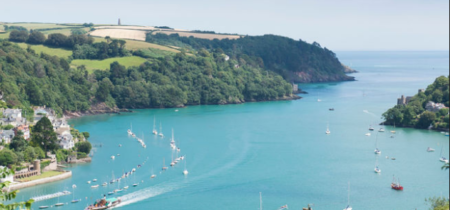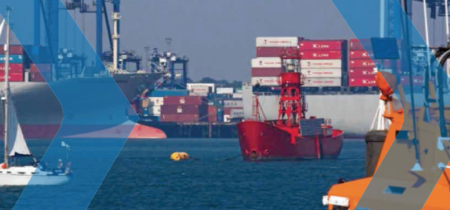The Port Marine Safety Code (“the Code”) sets out a national standard for every aspect of port marine safety. Its aim is to enhance safety for everyone who uses or works in the UK port marine environment. It is endorsed by the UK Government, the devolved administrations and representatives from across the maritime sector and, while the Code is not mandatory, these bodies have a strong expectation that all harbour authorities will comply. The Code is intended to be flexible enough that any size or type of harbour or marine facility will be able to apply its principles in a way that is appropriate and proportionate to local requirements.
The Maritime and Coastguard Agency (MCA) are currently engaged with the full review and update of the Port Marine Safety Code and Guide to Good Practice (GTGP). The MCA have postponed the requirements for Ports to confirm compliance with the code until the review and update has been completed. This is anticipated by March 2025. In the interim, Dart Harbour confirms its full and continuing compliance to the Port Marine Safety Code (PMSC).
The Code sets a number of requirements on Dart Harbour which we comply with as follows:
1 – Duty Holder
Formally identify and designate the duty holder, whose members are individually and collectively accountable for compliance with the Code, and their performance in ensuring safe marine operations in the harbour and its approaches.
Dart Harbour has identified the board as the Duty Holder. You can contact the duty holder by emailing [email protected], or via the Harbour Office.
The Duty Holder has a range of responsibilities to ensure compliance with the Code as specified below.
The Harbour Master is a member of the board, and has day-to-day responsibility for managing the safe operation of navigation and other marine activities in the harbour.
The Duty Holder reports our compliance with the Code as requested by the MCA on a three-yearly basis. These letters can be found here
2 – Designated Person
A ‘designated person’ provides independent assurance about the operation of the organisation’s marine safety management system and must have direct access to the Duty Holder.
Dart Harbour’s Board has appointed Andi Lloyd of Lloyd Marine as the Designated Person. He can be contacted at +44(0) 7986 704123 or by email [email protected]
The initial point of contact within the Dart Harbour Board for the Designated Person is the Chair of the Safety & Environment Subcommittee.
3 – Legislation
The Duty Holder must be aware of and review the organisation’s legal powers, duties and responsibilities based on applicable local and national legislation and seek additional powers if necessary to improve marine safety..
Dart Harbour is governed by a wide range of national legislation.
Dart Harbour’s powers come primarily from the Dart Harbour & Navigation Authority Act 1975 . This has been ammended by Harbour Revision Orders in 2002 and 2021
To enforce these powers the harbour has a set of Bylaws. The Harbour Master also has the power of Special Direction.
We review and revise our powers as necessary, for example in our 2021 harbour revision order.
4 – Duties and Powers
Organisations must comply with any statutory duties and responsibilities they have..
We have a number of duties and powers including:
Safe & Efficient Marine Operations:
We have a detailed set of policies & procedures for ensuring safe operations on the harbour. As part of our Navigational Risk Assessment, we have determined that a Vessel Traffic Service is not needed, but we do provide Local Port Service.
Open Port Duty
Dart Harbour is an open port. This means that the harbour is open to anyone for the shipping and unshipping of good and the embarking and landing of passengers, on payment of the appropriate dues and fees, and under the conditions set out by our legislation.
Appointment of a Harbour Master
Dart Harbour has appointed Paul Britton as Harbour Master. He can be contacted by emailing [email protected]
Directions
The Harbour Master has powers of special direction, and the harbour also has powers of general direction.
Pilotage & Towage
Dart Harbour is a competent Harbour Authority. Pilotage is compulsory for larger vessels, and we have authorised pilots and issue PECs to operate in the harbour. We have a Pilotage & Towage Policy, and have set Pilotage Directions, details of which can be found here.
Regulation of Marine Craft
Dart Harbour regulates small passenger boats on behalf of South Hams District Council. Details can be found here. We also regulate events, diving and other specific activities.
Environmental Duty
We consider the impact on the environment in everything we do. Dart Harbour is located within the South Devon National Landscape, and much of the water is within a Marine Conservation Zone. Further details can be found here
Emergency response & Civil Contingencies
Dart Harbour is a Category 2 responder, and a member of the Local Resilience forum to help control any emergencies that may occur on the river. We have a detailed Emergency Response Plan for this. We work closely with the Coastguard, Police and other organisations, and carry out regular drills and exercises.
We also have an Oil Spill Response Plan for dealing with pollution in the Harbour. We have our own Tier 1 equipment, and have appointed a Tier 2 contractor for this.
Collecting Dues
We collect harbour dues to pay for much of our work. In addition we charge fees for services including provision of moorings. Our accounts can be found here.
5 – Risk Assessment
Organisations must ensure that risks are formally assessed and are eliminated or reduced to the lowest possible level, so far as is reasonably practicable, in accordance with good practice.
Our Navigational Risk Assessments are consulted on regularly, and can be found here, along with a summary document explaining the detail of how we carry out risk assessment.
6. Marine Safety Management System:
Organisations must operate an effective MSMS which is based on formal risk assessment..
Our MSMS is a detailed set of policies, procedures, plans and other documents and records. The overview of the MSMS can be found here.
Implementation
The procedures in the MSMS allow its implementation at an operational level.
Accountability
The Duty Holder have ultimate responsibility for marine safety, with the Harbour Master & CEO delegated operational responsibility. The Safety & Environment Sub Committee allows the Duty Holder and Officers to discuss safety on a regular basis.
Stakeholder engagement and consultation
We consult with our stakeholders in the development of our MSMS amongst other items. As our MSMS and Risk Assessments are live documents, we have a rolling consultation for these, that allows comments at any time. Our consultations can be found here.
Incident reporting and investigation:
We investigate incidents that occur within the harbour, both to determine the cause with a view to preventing a similar incident, and to determine if an offence has been committed. We ask for any incidents and near misses to be reported as soon as possible. If it is an emergency, please contact the coastguard on VHF channel 16, or by calling 999, but please also follow up with an incident report. Incidents can be reported using this link
We publish a summary of incidents as part of our annual report.
Enforcement
The harbour uses our powers as required. The Enforcement Policy details how powers are normally used.
7. Review and Audit:
Organisations must review and audit performance against applicable requirements of the Code..
The Designated Person carries out a full audit each autumn, and an additional check on progress each spring. The DP’s audit reports can be found here
We also use a number of KPIs to monitor our safety performance on a regular basis. An annual summary is published as part of our annual report.
8 – Competence:
Organisations must use people who are appropriately trained, qualified and experienced to manage marine safety.
Dart Harbour uses a detailed competence matrix to ensure all our staff are appropriately trained, qualified and experienced. We also have a clear process of developing our team
9. Plan:
Organisations must publish a marine safety plan showing how the standards in the Code will be met and produce a report assessing performance against that plan at least every 3 years.
The latest version of the safety plan can be found here
10. Conservancy Duty
Organisations must ensure their facilities are fit for purpose and have a duty of reasonable care to ensure that any vessel can utilise them safely.
Hydrographic information – Harbour Authorities
We regularly survey and mark the navigable channels in the harbour. Our latest hydrographic surveys can be found here
Aids to Navigation
Dart Harbour is a Local Lighthouse Authority, and maintains the Aids to Navigation on the Dart in accordance with the standards of Trinity House, who carry out regular inspections and audits.
Wrecks & abandoned vessels
Dart Harbour has the power to mark, take possession of, remove or destroy any wreck in or near the harbour. We also have powers to remove unserviceable vessels located within the harbour.


